We all make mistakes! But learning from them is what matters.
It's easier to learn and improve when we can view mistakes as being caused by bad systems instead of blaming bad people.
For example, I've used online scheduling tools (as I've blogged about) over the years, starting with YouCanBook.me and recently switching to Calendly.
When people schedule time with me, I've always had a rule in those tools that forces 15 minutes between meetings, so I'm not stressed about being back to back (nor am I late when the previous meeting runs over).
The scheduling tools have allowed people to schedule meetings that start at either :15 or :45 past an hour — in addition to the more usual starting times of :00 or :30.
The Mistake
There's a certain mistake that's happened countless times. People who have booked meetings with me have made the mistake. I've been tripped up by the same mistake.
Maybe it's confirmation bias, but I think we get tripped up when we look at a visualization of our calendar (on a computer or a phone). We are used to meetings starting at the top of an hour or the bottom.
It's easy to misread a 11:15 meeting as being 11:30.
Again, I've done this a few times — and it's embarrassing to be late.
If we misread a meeting in a way that gets us to join 15 minutes early, we might mistakenly think the other person is a no-show.
Well, that happened today. I signed on for an 11:45 pre-call for the “My Favorite Mistake” podcast with a potential guest. I usually give five or ten minutes grace. By 11:55 AM, I thought the guest was a no-show.
I've learned not to get upset or take it personally when somebody no-shows because things happen. Sometimes a person is a no-show due to an emergency. It's happened before and that could have been the case today.
I made the mistake of not reaching out to Jason via phone, text, email, or LinkedIn messages. I normally do that, but didn't today. I deleted / canceled the meeting and was going to ask him to reschedule, no worries.
But I got a LinkedIn message from him at about noon asking why I had canceled. Then, the “oh crap” realization that he had gotten the time wrong.

I started up a new Zoom meeting and talked to Jason there. He was apologetic. I told him it was OK.
As it occurred to me that this has happened many times… I finally thought,
“I should improve my system.”
So, after our call, I did just that.
Calendly has a setting where I can force meetings to start at only :00 or :30 times. I set the “incremement” to 30 minutes.
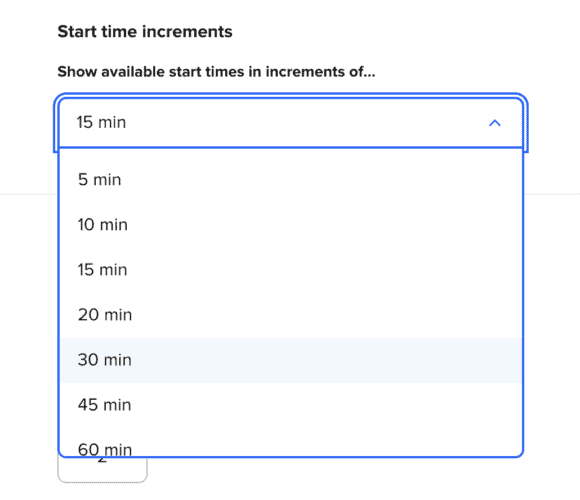
That's now reflected in my scheduling tool when people try to book a pre-call:
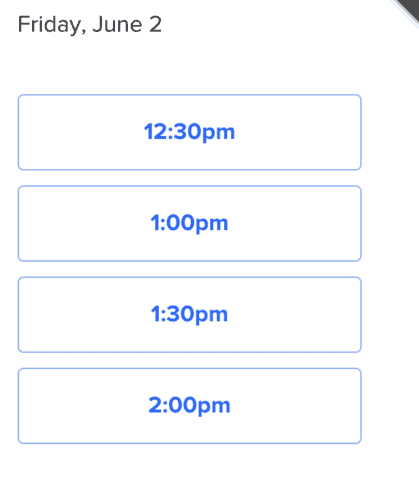
Instead of getting upset… or just being nice about the mistake… I was able to be kind and constructive, which is even better.
Nice vs. Kind
As a quick aside, my friend Karyn Ross helped me quite a bit with my book The Mistakes That Make Us: Cultivating a Culture of Learning and Innovation. In particular, she helped me understand what she teaches about the difference between “nice” and “kind” in the context of mistakes.
When being “nice,” we focus on not making the other person feel bad. I might say, “It's OK” to each person (or to myself) each time that mistake gets made. But I might be doing that a lot.
Being “kind” is more active and helpful. It's constructive. Fixing the system to prevent an error is more kind.
Improving the System
By changing the scheduling system, I'll never get mixed up by a :15 or :45 meeting — and nobody else will, either!
Jason and I had a good chat about podcasting and ended up on the topic of Apple Podcasts and what I thought was a bug or issue with Apple not taking in the new podcast cover image for my Lean Blog Interviews podcast (which I had recently updated to include a new headshot). Yeah, my hair is more gray than it was almost five years ago.
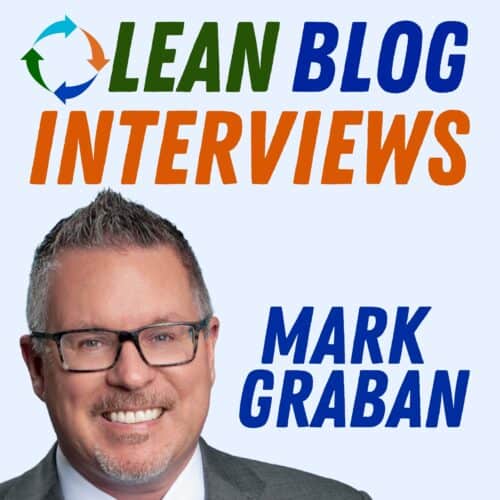
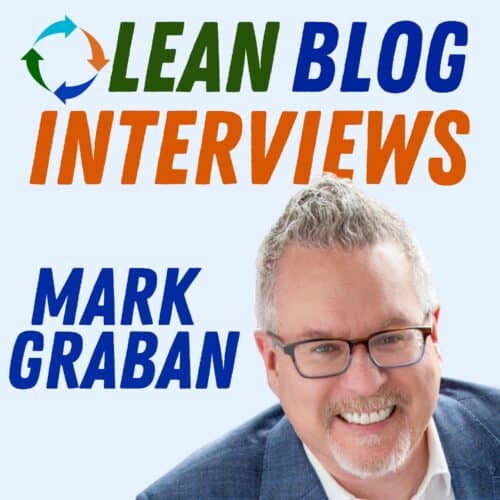
My Mistake
The mistake was actually on my end, not Apple's.
I had mistakenly thought that the maximum podcast cover image size was 3600×3600, and that's the size I had added through my podcast host, Podbean.
Every other podcast platform (including Spotify, Amazon, etc.) was accepting of the new 3600 square image. But not Apple.
But as I looked in Podbean… I read the guidance that said the maximum size is 3000×3000.
Oops!!
600 pixels makes a difference.

Once I uploaded a smaller 3000×3000 image… Apple Podcasts was updated almost immediately!
Lessons Learned
In both cases, it's better to look into what I can do instead of pointing the finger at others.
With the scheduling / calendar mistake, I was doing a good job of not blaming people or grousing about how we (including me) need to be more careful. Instead of being nice about it, I was better off kindly improving my system so that the mistake could not happen again.
But with Apple… I was still blaming them. Thankfully, I took another look — and a closer look. I discovered my mistake, which was easily fixed.
Mantras
I'll again remind myself of the mantras that I read on my “My Favorite Mistake” coffee mug:
Be kind to yourself.
Nobody is perfect.
We all make mistakes.
The important thing is continuing to learn from our mistakes (and helping others do the same!)
Please scroll down (or click) to post a comment. Connect with me on LinkedIn.
Let’s work together to build a culture of continuous improvement and psychological safety. If you're a leader looking to create lasting change—not just projects—I help organizations:
- Engage people at all levels in sustainable improvement
- Shift from fear of mistakes to learning from them
- Apply Lean thinking in practical, people-centered ways
Interested in coaching or a keynote talk? Let’s start a conversation.




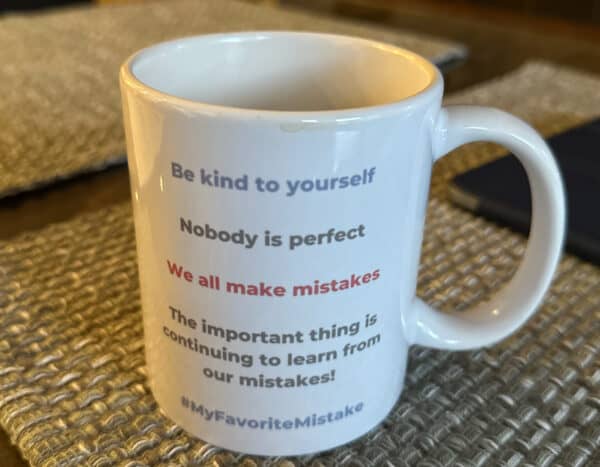






Jason’s perspective, as shared on LinkedIn:
https://www.linkedin.com/posts/activity-7070385708665839616-L3mT?utm_source=share&utm_medium=member_desktop